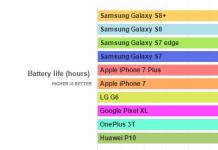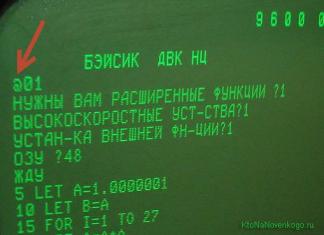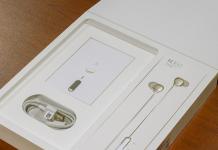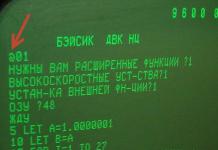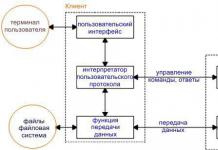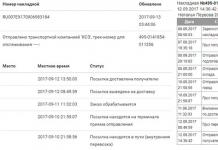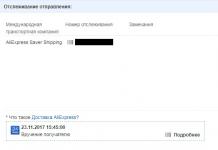Every year we increase prices for certain housing and communal services. This year there were some changes and from the new year the subscription fee for a collective antenna in Moscow increased to 204 rubles per month. This is already higher than many digital television tariffs, but many people pay for an antenna out of habit.
In fact, the collective antenna in Moscow is a city cable television that retransmits fifty channels in analog format at frequencies that differ from broadcast frequencies. In most of the city, 52 channels are broadcast by Rostelecom, and in some places in the southeast of Moscow, 55 channels are rebroadcast by Akado.
Of course, the picture of analogue TV on modern large TVs looks very mediocre and if you watch TV, it makes sense to switch to digital television, there are many options for connecting to it in the city, and prices already start at 145 rubles for 129 channels, including 13 channels in HD. True, you will also have to buy a TV set-top box (about 3,000 rubles) or pay for its rental, however, there are tariffs with free rental.
You won’t surprise anyone with FullHD high-resolution pictures on digital television, and operators are starting to introduce UltraHD 4K. MGTS even plans to rent 4K TVs to viewers of UltraHD channels.
In addition to the quality of the picture and the variety of channels in the main package, all operators offer additional packages of channels based on interests: sports, children's, TV series.
There are several large digital television operators in Moscow - Online, Akado, MGTS, Beeline, NetbyNet, 2COM and several dozen other small ones. Competition in the digital television market is high, so operators regularly organize various promotions, using which you can pay even less for digital TV.
All operators are also home Internet operators, so they all have Internet + TV package offers.
Digital television also has its drawbacks: you need a set-top box with a separate remote control (the exception is Online and Akado, which offer not only set-top boxes, but also CAM modules for the TV), you need to pay extra for connecting a second TV, but there are still more advantages.
Of course, in addition to the analogue community antenna and digital cable television, there are other options for television reception:
Individual analog antenna. There are currently only 19 channels on air. Reception requires direct visibility of the Ostankino Tower and a good antenna. Quality is limited by analogue broadcast capabilities.
Digital terrestrial television DVB-T2. There are three multiplexes with 10 channels each (in the third multiplex the channels change throughout the day). For reception you need an antenna directed towards the Ostankino Tower (but sometimes it also works on a reflected signal), DVB-T2 support on your TV or a DVB-T2 set-top box. The picture quality is much better than in analogue broadcasting, but there is no HD and there are few channels.
Satellite television. Reception requires quite expensive equipment (dish, receiver, access card). There are many channels, there is HD, and the price of packages starts from 25 rubles per month.
In order to stop paying 204 rubles a month for a collective antenna, all you have to do is go to the Rostelecom or Akado office and write a statement, according to which a technician will come and turn off the antenna.
Surely, many modern people who want to connect to home Internet think, first of all, about which provider to contact. Currently, there are quite a lot of such companies and you can make the right choice of Internet provider for connecting to the Internet on the website https://internet.gde-luchshe.ru/.
Among the most popular and popular providers, AKADO and Rostelecom should be highlighted. But what is better than AKADO or Rostelecom is up to future clients to decide. But before you make a final decision, you should think carefully about everything, weigh it, and consider all the subtleties and nuances of the services offered by one and the other company. Also think about the purposes for which you need the World Wide Web, and how much money you are willing to allocate monthly for payment.
So, let's look at these companies separately and try to determine the advantages of using one or another provider. And then you will be able to determine AKADO or Rostelecom.
Internet provider AKADO
AKADO is a well-known Internet provider that has been providing users with high-speed Internet, digital television, and IP-telephony services for a long time. Thanks to excellent customer service and excellent quality of services, this company is a leader among a huge number of competitors.

The AKADO provider offers a fairly wide range of services. If we talk specifically about the Internet, the choice of tariffs is quite large. Therefore, each client who comes here will be able to get the most suitable option for himself, meeting his requirements and preferences. The connection speed to the World Wide Web can reach 100 Mbit/s. In addition, the company guarantees excellent, uninterrupted data transfer.
- This company uses modern technologies to connect its customers to the Internet. The main advantages of connecting to the Internet from the AKADO operator:
- Connection is completely free, at the most convenient time for the client;
- High-speed Internet is now available to everyone;
- Excellent value for money in relation to the services offered;
- 24/7 support.
Internet provider Rostelecom
One of the largest companies in Russia providing telecommunications services is Rostelecom. Today, the services of such a provider are used by a million people. That is why, when you connect to the Internet from Rostelecom, you will be confident in its impeccable quality and reliability. You will have the opportunity to communicate on social networks, download and view media, information, and keep abreast of the latest news in the world. And a wide variety of tariffs will satisfy even the most demanding consumer.

By and large, the World Wide Web from Rostelecom covers a fairly large coverage area. So, people from different parts of our country can connect to this provider.
It is difficult to disagree with the fact that one of the main needs of a modern person is the availability of high-speed Internet. As a result of such demand, the telecommunications services market is constantly growing. Accordingly, a lot of companies offer connection to a home network. But you should only seek such services from competent providers. With Rostelecom you will not have any connection difficulties. This is a national-scale company that is ready to provide quality service at a low cost.
The provider equally provides the Internet to all its clients, regardless of their region of residence. At the same time, the company offers both wireless and wired technologies. And the variety of tariffs will allow you to select a “package” of services based on specific needs.
Each Rostelecom client is invited to create a personal account on the provider’s website, where you can enable and disable various options: organize a home network, restrict access to the World Wide Web, obtain a fixed address, and so on.
Well, which provider to choose depends solely on your requirements and preferences.
Comments and reviews
As part of the “Laboratory”, today we will study in detail the Trust GXT 130 Wireless wireless gaming mouse. Don't see...
New smart TVs from OnePlus will be revealed next month. OnePlus CEO Pete...
The YouTube Music app has finally received the long-awaited sorting option that will allow users...
At Gamescom 2019, the star of the show was the new Alienware 34 AW3420DW monitor, an updated version of its predecessor...
08/09/2017, Wed, 09:50, Moscow time , Text: Igor Korolev
The Renova Group has resumed negotiations on the sale of the Akado operator. The main asset of Akado in Moscow may go to Rostelecom, and regional assets to the Er-Telecom holding.Renova has found buyers for Akado
The Renova Group is negotiating the sale of its pay television and Internet access operator Akado. This was reported by the Rambler News Services (RNS) agency, citing its own sources.
According to the publication, first the Er-Telecom holding will acquire the regional assets of Akado: Akado-Ekaterinburg and TKS-Neva (operating in St. Petersburg). ER-Telecom has already submitted a corresponding application to the Federal Antimonopoly Service (FAS).
Then Akado, which will retain its main asset in the capital, can be sold to Rostelecom. RNS claims that a non-disclosure agreement was signed between Rostelecom and Renova a month ago. The transaction can be paid for with quasi-treasury shares of Rostelecom, which are on the balance sheet of the operator’s subsidiary, Mobitel.
How much to value Akado and how to pay for it?
One of the agency's sources says that Rostelecom is ready to pay for Akado based on a multiplier of four times EBITDA (earnings before taxes, interest on loans and depreciation expenses). At the same time, Renova values Akado at a multiple of six times EBITDA, but for this the operator must show growth in the mass market (B2C).
Moscow assets of Akado may go to Rostelecom, and regional ones to Er-Telecom holding
Another agency source says that during the deal with Rostelecom, an estimate of six to eight EBITDA indicators is being discussed. Rostelecom and Renova declined to comment.
The history of unsuccessful sales of Akado
The basis for Akado was the Comcor fiber optic network, built in the 1990s with the support of the Moscow Government (the network provides services in the b2b segment). In the early 2000s, Comcor entered the mass market using the Comcor-TV brand, providing cable television and Internet access services using Docsis technology.
In 2005, the company began operating under the Akado brand. At the same time, the Renova group became the main shareholder of Akado. From the founder of Akado Yuri Pripachkin remained a blocking stake in the company. In the summer of 2017, it became known that Renova had consolidated 100% of Akado shares.
In the mid-2000s, Akado bought several metropolitan home networks that provided Internet access services using Ethernet technology. At the same time, Akado carried out regional expansion, but after the 2008 crisis, the active development of the company was suspended.




